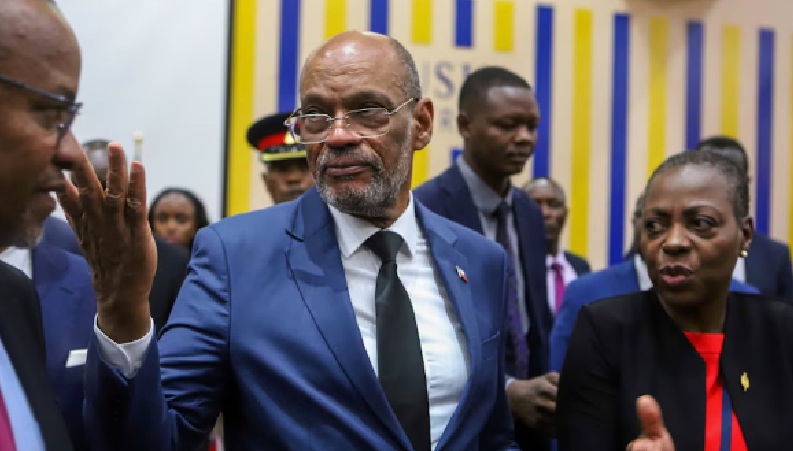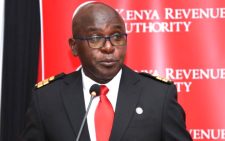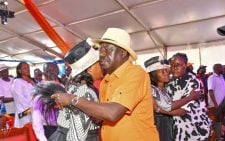Kenya’s Haiti peace mission in jeopardy after PM resigns

Kenya’s plan to deploy 1,000 police officers to the failed Haiti State has been thrown into uncertainty after its besieged Prime Minister Ariel Henry resigned on Monday to make way for a transitional authority.
The resignation of Henry, who is stranded in Puerto Rico, came hours after regional leaders met in Jamaica on Monday to discuss a political transition in the Carribean nation.
Henry was not at the summit, which took place behind closed doors and also attended by US Secretary of State Antony Blinken.
In Nairobi, Interior Cabinet Secretary Kindiki Kithure yesterday maintained the officers will proceed to the troubled country as earlier planned despite the turn of events.
Kindiki said the mission was in the pre-deployment stage, adding that laws and enforcement measures, like detention and arrests, had been finalised.
The High Court, in blocking the deployment, raised a number of issues but Kindiki said they had all been addressed.
On Saturday, Blinken asked Kenya to accelerate deployment of police to the troubled Haiti, saying Haiti National Police could crumble any time if the deployment is not done urgently.
According to the Spokesperson for the US Department of State Mathew Miller, Blinken and President William Ruto spoke on Saturday night to discuss the ongoing political and security crisis in Haiti.
In Nairobi, officials aware of the plans said they had been told to be ready for deployment for the mission anytime. President Ruto has, however, said though the troops are on standby, they cannot leave without adequate funding.
Initially, the rules of engagement were that Kenyan police guard key government infrastructure including airports, hospitals and Parliament.
According to a US official, the decision for Henry’s resignation was made on Friday though he did not officially tender it until Monday evening.
A US official in Puerto Rico said Henry had confirmed his resignation in a call with Blinken. He later, in a video address, said: “The government I am leading will resign immediately after installation of the council. I am asking all Haitians to remain calm and do everything they can for peace and stability to come back as fast as possible.”
Henry had travelled to Kenya but the gangs took control of the streets of the Haitian capital of Port-au-Prince, with calls for his resignation while he was away, leaving him stranded in the US territory of Puerto Rico.
Henry took over power after the 2021 assassination of President Jovenel Moise, and had postponed elections, citing lack of security.
On Friday last week, there was heavy gunfire near the capital’s National Palace. The gangs had earlier broken thousands out of prisons, forcing the main cargo port to close and the government to order a state of emergency.
The alliance of gangs, led by Jimmy “Barbecue” Cherizier, went on the rampage, and warned of civil war and genocide if Henry did not step down.
A number of measures have been put in place to restore order but in vain. On Saturday, for example, government representatives, opposition groups and religious groups met with leaders from US and CARICOM to find ways of returning stability.
Following the resignation, the CARICOM chair and Guyana President Irfaan Ali said the presidential transitional council will be formed, made up of two observers and seven voting members representing a range of Haitian society.
“We acknowledge his resignation upon the establishment of a transitional presidential council and naming of an interim prime minister,” Ali said.
During the transition, the council will exercise specified presidential powers through majority vote and appoint an interim Prime Minister and a Cabinet, and establish a provisional electoral council that will be tasked with paving the way to Haiti’s first elections since 2016.
According to authorities, the seven voting members will be drawn from Haiti’s business sector and political parties or coalitions, including a group known as the January 30 Collective, and the December 21 Accord, an organisation that had backed Henry’s mandate to rule until February.
While Biden’s administration is committed to funding Kenya’s mission in Haiti, this has been met with resistance from Republicans. The United States Government is awaiting support from Republican congressmen to approve about Sh14 billion to help kick off of the mission.
Biden made the pledge on September 23, 2023 to cover logistics, intelligence, communication and medical support for Kenyan troops.
Teams are from the Rapid Deployment Unit, Anti Stock Theft Unit, General Service Unit, and Border Patrol Unit and had been retrained for six months and graduated on January 4.
Bahamas and Benin have committed to sending troops, while Jamaica and the State of Antigua and Barbuda have said they are willing to help. On October 2, last year, the United Nations (UN) Security Council voted for the one-year deployment of a non-UN multinational force led by Kenya police officers.
The council had also developed the framework for and authorise the mission, with a review after nine months.
The 15-members of the Council approved what is known as a Chapter VII provision of the UN Charter that authorises the use of force after all other measures to maintain international peace and security are exhausted, according to the UN.












